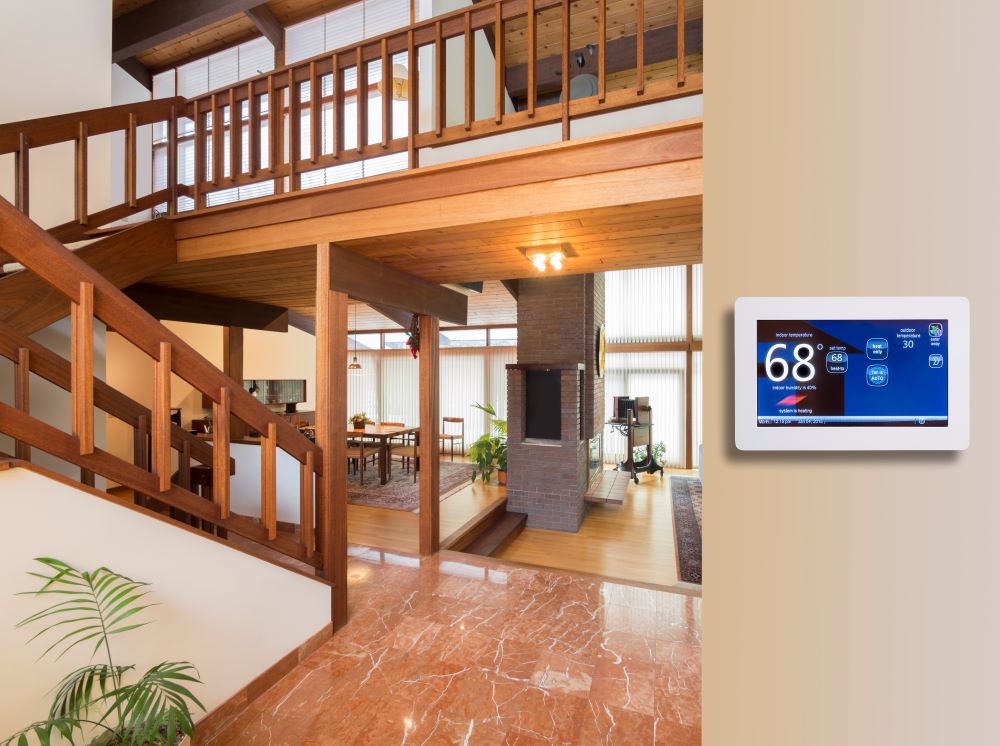A Guide to Residential Heating and Air Conditioning Units
If you’re looking for an efficient way to heat and cool your home, consider installing a new residential HVAC system.
HVAC (Heating, Cooling and Ventilation) systems include heating and air conditioning units that keep your home at a comfortable temperature year-round. They also keep indoor air clean by filtering it before it is bought into the home.
While some HVAC systems consist of a home air conditioning unit and a separate heat source, these days systems are often combined so a single unit can provide both warmed and cooled air.
There are many different options when it comes to choosing an HVAC system for your home, which may depend on whether you have existing ducting, space for ducting or need a ductless system.
This guide to residential HVAC systems will help you determine which system is right for your home. Remember to consult with an HVAC professional for expert advice on which system to choose.
What is a Residential HVAC System?
A Residential HVAC system does more than just warm or cool your home. It also serves to improve indoor air quality and provide comfort for everyone inside a building, whether residential or commercial.
Residential HVAC systems generally consist of:
- A heating system
- A ventilator
- An air conditioning/cooling system
Depending on the system you choose, these components may all be separate, or they can be joined in one unit like in a heat pump.
How is a Residential HVAC Different from a Commercial HVAC?
HVAC systems are also made for commercial settings, but these differ from residential systems in terms of size, placement, operating power and capacity.
Commercial HVAC systems need to heat and/or cool much larger spaces than residential ones. This requires more power and uses more energy than an AC unit for a house.
HVAC in a residential setting is easy to manage and control, with many connected to smart thermostats that can be programmed to your individual preferences. This can’t be done in commercial settings, where usually an average temperature range is chosen, or very complex DDC controls systems are utilized.
Different Types of HVAC Systems
Residential HVAC systems are ideal for Canadian seasons, where we experience hot summers and long cold winters. Not all systems are suitable for every home, though.
Here’s a crash course on the four main types of systems on the market:
- Ducted split system: These systems utilize the ductwork of your home to circulate warm or cool air that is generated by either separate heating and cooling systems or a heat pump.
- Hybrid system: A combination of a traditional heating system, such as a furnace with a high-efficiency heat pump. The system uses the more energy-efficient heat pump most of the year but switches to the furnace or other back up heating system when the weather gets too cold, resulting in big energy savings.
- Ductless system: If your home doesn’t have ducts, a ductless split is the right system for you. In this system, also referred to as a mini-split system, a heat pump is located outside the home, linked to multiple ‘heads’ inside the home that distribute the warmed or cooled air.
- Packaged system: These all-in-one systems feature heating and cooling components packaged together in one housing, or package, to save space. These are ideal for homes that don’t have room for indoor installation.
Factors to Consider When Buying a Residential HVAC
Now you know about some of the different types of HVAC systems available, but of course, there are many versions of each on the market. Consider the following factors when shopping for an HVAC system:
Home comfort, temperature and air quality: Air temperature and quality are vital to your home’s comfort. Be mindful of how different features in heating and cooling units can influence your indoor temperature, energy consumption and air quality.
For example, Forbes points out in the article Best HVAC Buying Guide, that elements such as UV light in your HVAC system can increase energy consumption and affect indoor air quality too.
HVAC efficiency: HVAC systems have come a long way over the years, including how their efficiency is determined. Various rating systems can now guide you as to the efficiency rating of your chosen product. These are:
- Seasonal Energy Efficiency Ratio (SEER) – choose a rating of at least 18+
- Heating Seasonal Performance Factor (HSPF) – this is a rating for heat pumps. Look for a rating between 8 and 10+.
- Annual Fuel Utilization Efficiency (AFUE) – an efficiency measure for furnaces and boilers
Heating and cooling capacity: The capacity of your new HVAC system is measured in BTUs (British Thermal Units – or kW). The higher the BTU, the greater the capacity of your HVAC system.
Programmable thermostat compatibility: Some HVAC systems are compatible with programable thermostats that allow greater control over heating and cooling, resulting in lower energy bills. Using a programmable thermostat can prolong the life of your HVAC system. Some can even be controlled with your smartphone.
Maintenance requirements: All HVACs need regular maintenance to perform well for longer, so invest in one that is easy to maintain and cost-effective. Agree with your installation expert to include a service plan that combines regular inspections, and be sure to take care of your HVAC system in between its round of quality check-ups.
Sound: No one likes a loud HVAC system. Check the noise level of your chosen HVAC before you install it to save headaches later – almost always, the higher efficiency units are the quietest.
Is Cost an Important Factor when Choosing an HVAC system for the home?
The right HVAC system might not be the cheapest option. Remember that a higher price could equal cost-effectiveness in the future. When considering your budget for a new HVAC system, be sure to take other factors, such as energy efficiency and durability, into account.
Installing a Residential HVAC System
Our team of HVAC experts at Lockhart Industries can offer advice on the best type of HVAC systems for your home.
Serving residential and commercial customers from Haida Gwaii to San Francisco Bay, we are proud to offer professional installation, maintenance and repair services to ensure your HVAC system runs smoothly and continues to keep you comfortable for years to come.
Contact us today for a consultation or to get more information.
Easy Financing with…
Start Saving Money NOW! There’s no need to putting off a more Energy Efficient, Cost Effective home comfort system. We make it simple!
With Financeit you can:
- Make additional payments any time without penalty.
- Get a lower payment by choosing an amortization period of up to 180 months. 7.99% to 11.99% interest rate.*
- We add a small fee to the loan amount. There are no hidden or additional charges
- Bank-level encryption (AES-256 bit SSL) to protect your personal information.




